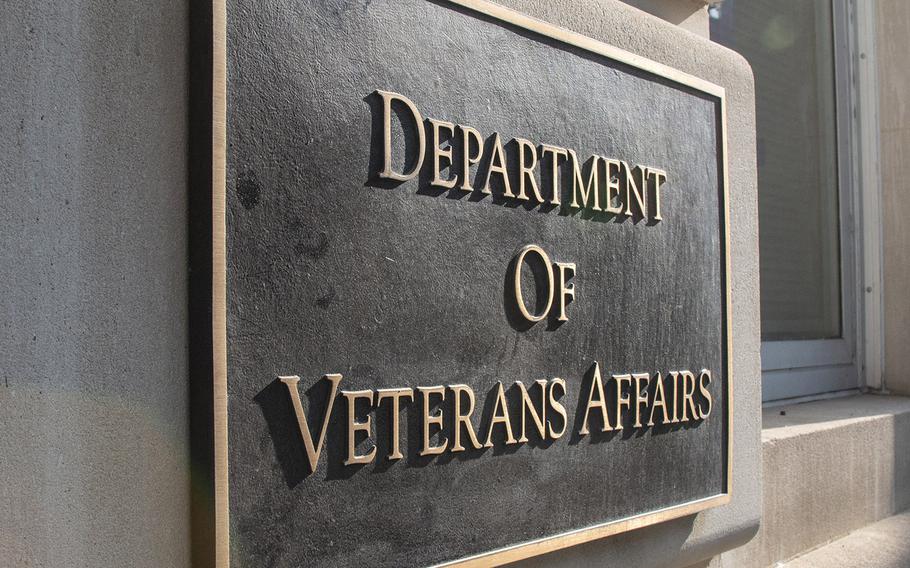
(Stars and Stripes)
WASHINGTON — The Department of Veterans Affairs has unlawfully turned away veterans with other-than-honorable discharges for decades because of flawed training and guidance that created a “cycle of misinformation,” a report released Thursday found.
Rather than telling veterans with other-than-honorable discharges to fill out applications for health care, sending a written denial and informing them about their options to appeal, VA staff often rejects them on the spot, the report says. While other-than-honorable discharges, commonly known as “bad paper,” can preclude veterans from some VA services, that’s not always the case — particularly with mental health care.
The gay veterans group OUTVETS, along with the Veterans Legal Clinic at Harvard Law School, authored the report. They based findings on interviews with veterans, evidence from veterans advocates and legal aid attorneys, and documents obtained from the VA and Defense Department.
Dana Montalto, an instructor at the Veterans Legal Clinic, said veterans are being denied due process.
The VA did not maintain records of veterans with bad paper who were rejected on the spot, but the report’s authors estimated numbers in the tens of thousands since 1980. There are about 400,000 veterans who are at risk of being denied care today, they wrote.
“By its very nature, the turn-away problem is one in which usually no record is created, and as a result no VA documentation exists. It is therefore impossible to know definitively how many veterans were wrongly denied care, where they are located, and when it occurred,” the report states. “The pattern, however, is clear: VA’s denial of care to veterans with bad paper discharges is national, persistent, and systemic. Its impact on some of our most vulnerable veterans can be harmful or even deadly.”
Veterans receive other-than-honorable discharges for a host of reasons, including serious crimes. However, service members with bad paper were, in many cases, unjustly released from the military because of infractions that stemmed from mental health issues.
The Government Accountability Office found that tens of thousands of Iraq and Afghanistan veterans who were separated from the military for misconduct had suffered from post-traumatic stress disorder, traumatic brain injury or another mental health disorder.
Service members in the LGBT community were also given other-than-honorable discharges during the days of “Don’t Ask, Don’t Tell,” a policy that barred openly gay people from military service. When the policy was in place from 1994 to 2001, more than 100,000 servicemembers were discharged because of their LGBT status, the OUTVETS report shows.
VA Press Secretary Christina Mandreucci said Thursday the agency is in the process of updating its enrollment system so it would track those veterans with bad paper who are eligible for health care. Currently, any veteran can apply for VA services on the agency website, and receive a written decision and information about how to appeal, she said.
OUTVETS and the Veterans Legal Clinic made several recommendations to the VA: to improve its training and guidance regarding veterans with bad paper discharges, to improve its communication with veterans and to conduct outreach and remediation for the veterans it has turned away.
OUTVETS found that VA’s training about veterans’ eligibility for health care is “brief, legally incorrect or otherwise inadequate.” It didn’t include instructions for front-line workers about the eligibility of veterans with bad paper, and one training presentation listed other-than-honorable discharges as disqualifying for VA services.
The authors of the report wrote about their concerns for veterans with mental health issues who were turned away. A study published in the Journal of the American Medical Association found that veterans with bad paper have higher rates of mental health conditions, suicide, homelessness and unemployment.
“For many veterans, this initial rejection leads them to end their search for care altogether,” the OUTVETS report reads. “It is time for VA to stop this cycle of misinformation and stigma and to honor that every person who has served in the military has a right to apply for VA care.”
Congress approved a measure in 2018 to increase mental and behavioral health care for veterans with other-than-honorable discharges. It built on changes established in 2017 by then-VA Secretary David Shulkin to offer mental health care to those veterans who were in crisis.
Sen. Chris Murphy, D-Conn., led the charge on the legislation, but has criticized the VA multiple times over the past two years about its failure to comply.
The VA mailed letters to 444,487 veterans with bad paper at the end of 2018, informing them of their eligibility for mental health care. Mandreucci said the agency has done more outreach to veterans with bad paper in the past few years than it’s ever done before. But Murphy called it the “bare minimum.”
The VA treated 3,765 veterans in fiscal 2019 under the new law, Murphy’s office said.
Following the release of the OUTVETS report Thursday, Murphy called again on the VA to comply with the law and allow veterans to apply for health care.
“I worked hard to pass this legislation into law because I heard from Connecticut combat veterans with other-than-honorable discharges who were denied the mental health care they earned,” Murphy said. “It should be simple: if you put your life on the line for the United States, we’re supposed to have your back when you return home. I will continue to insist the VA notify other-than-honorable veterans of their new eligibility for care and demand the department is fully complying with the law.”
wentling.nikki@stripes.com Twitter: @nikkiwentling